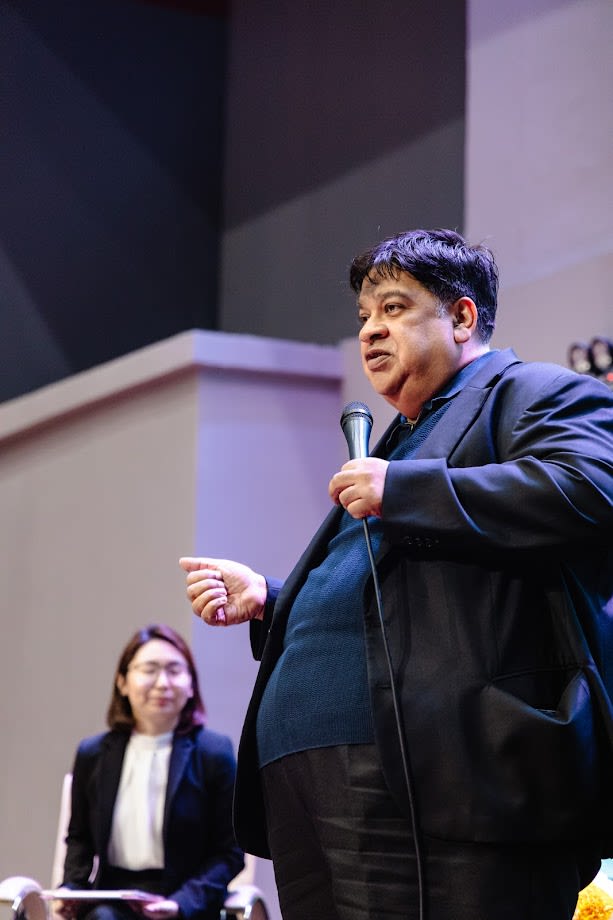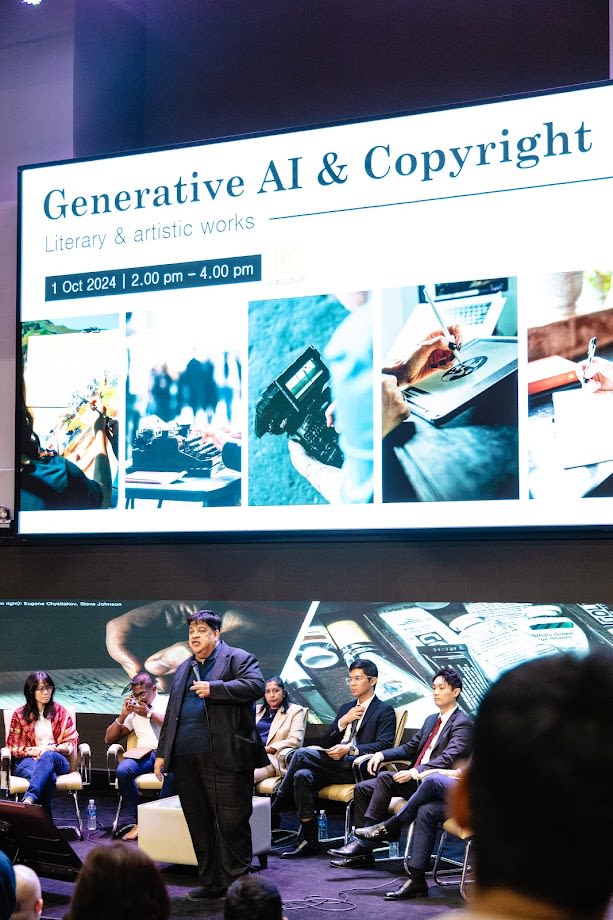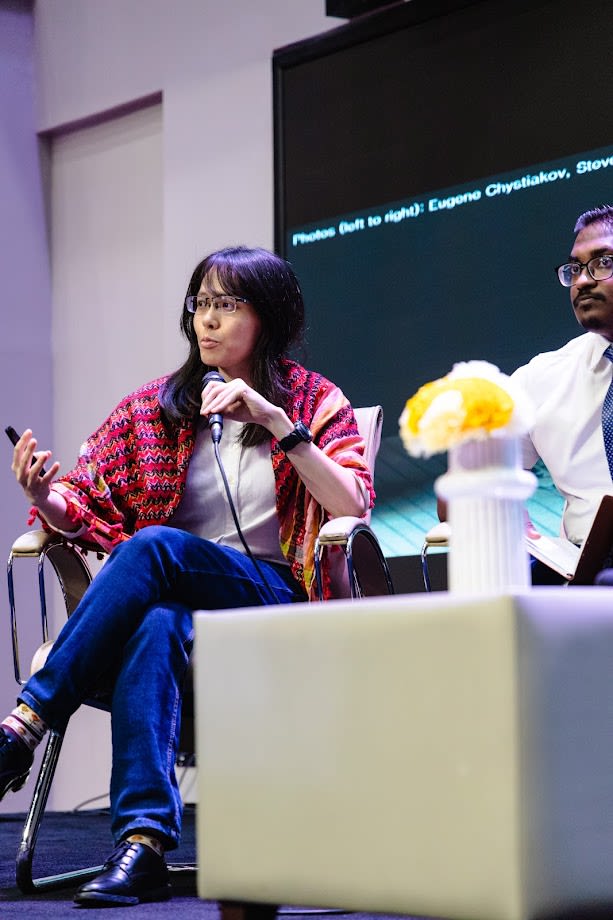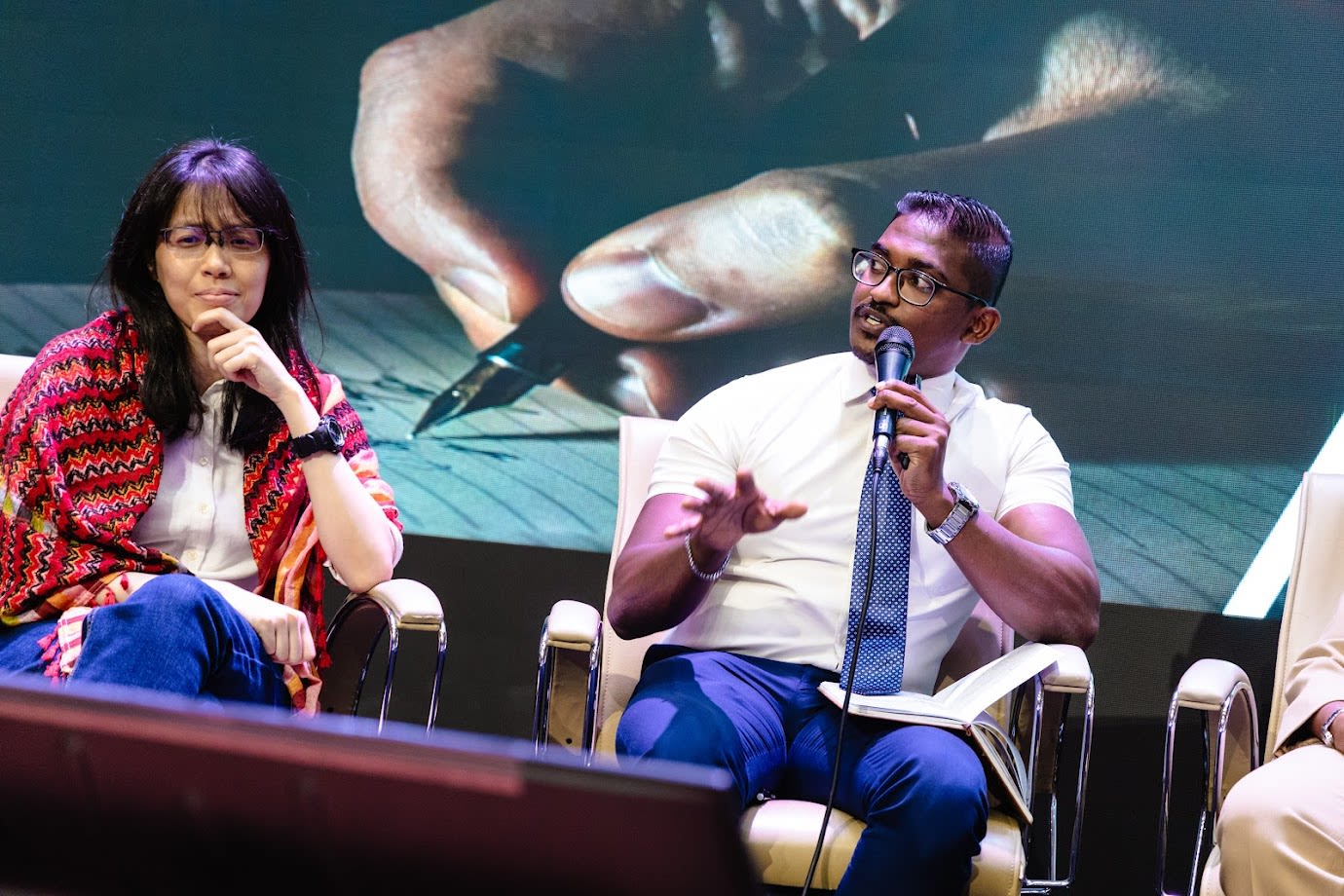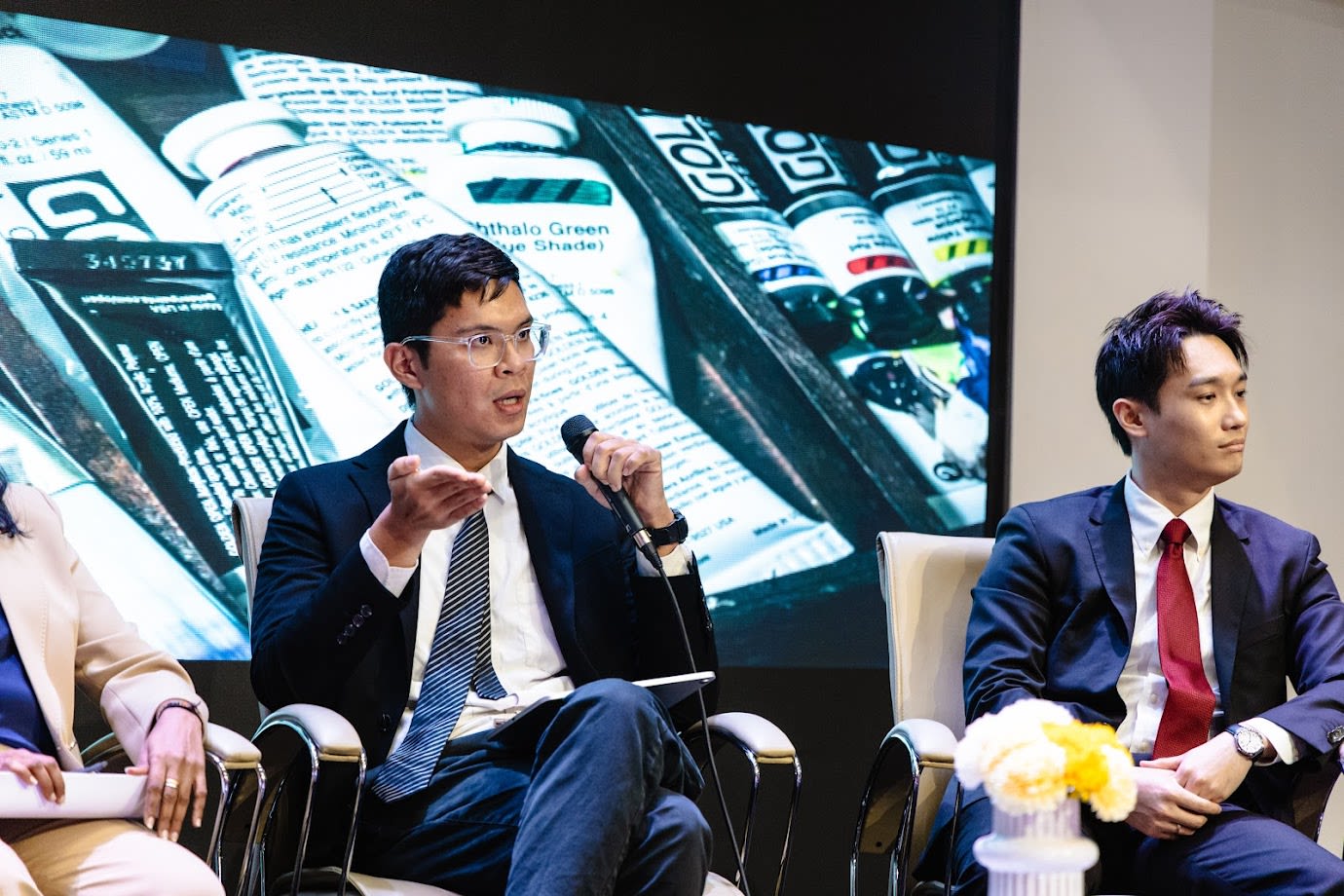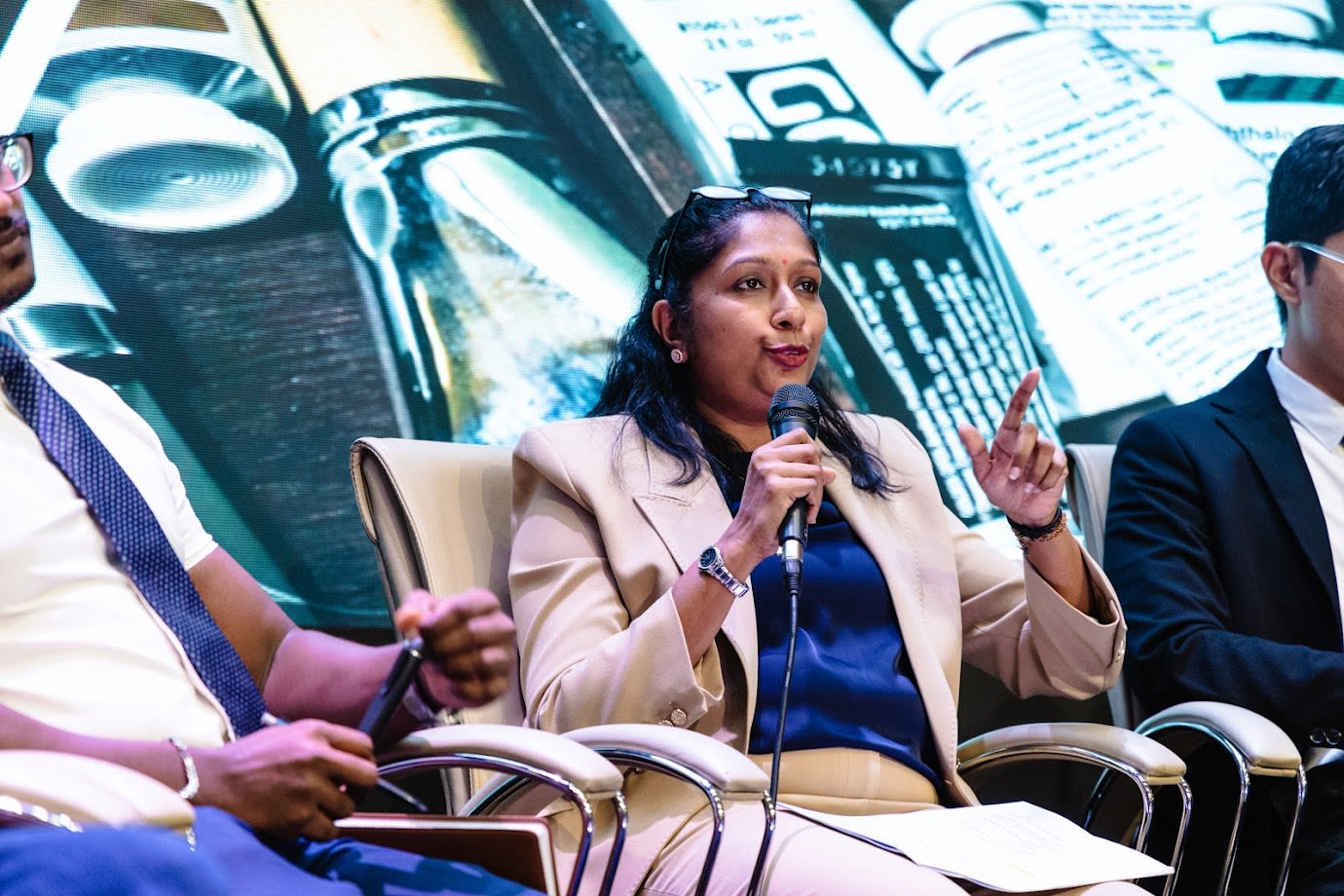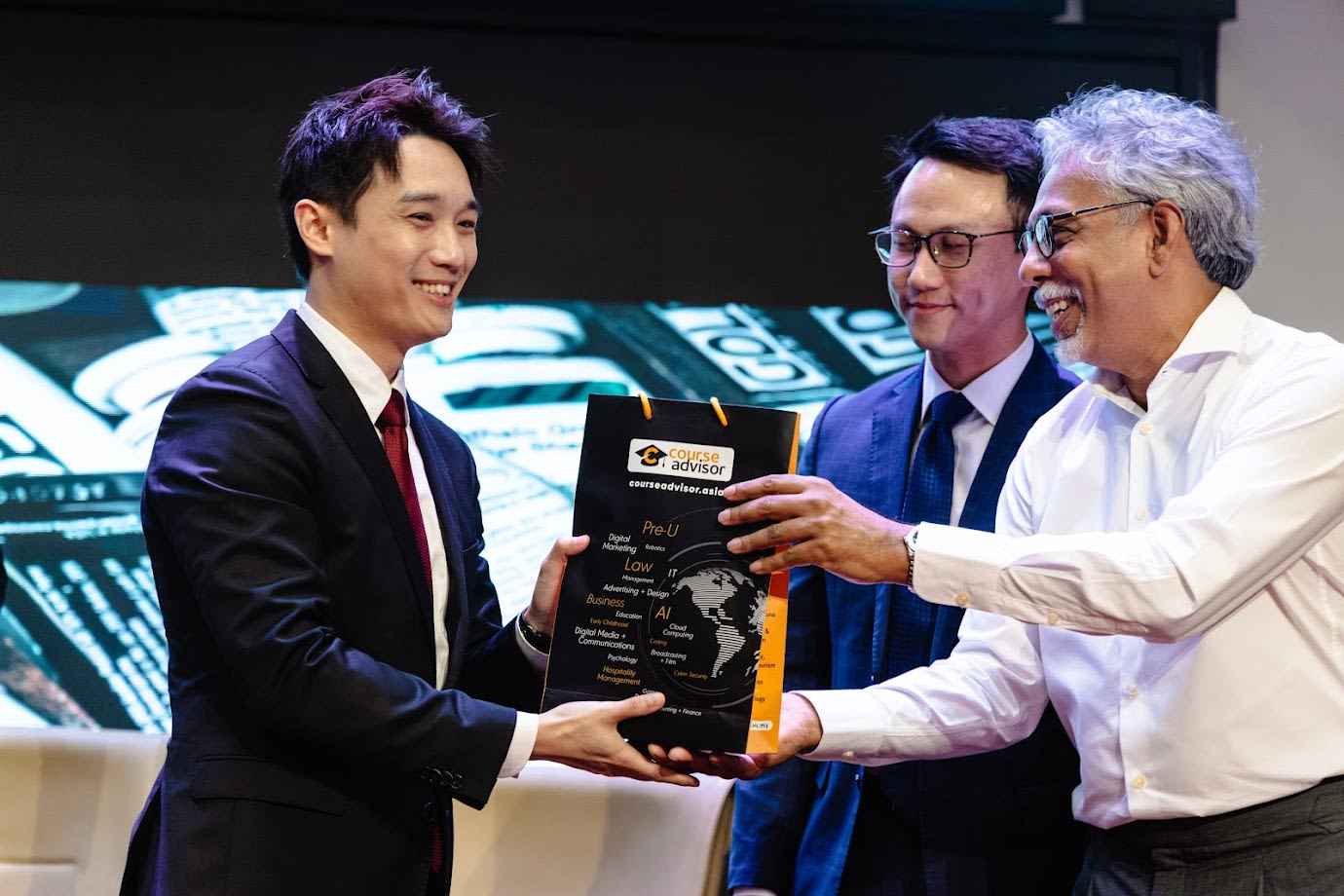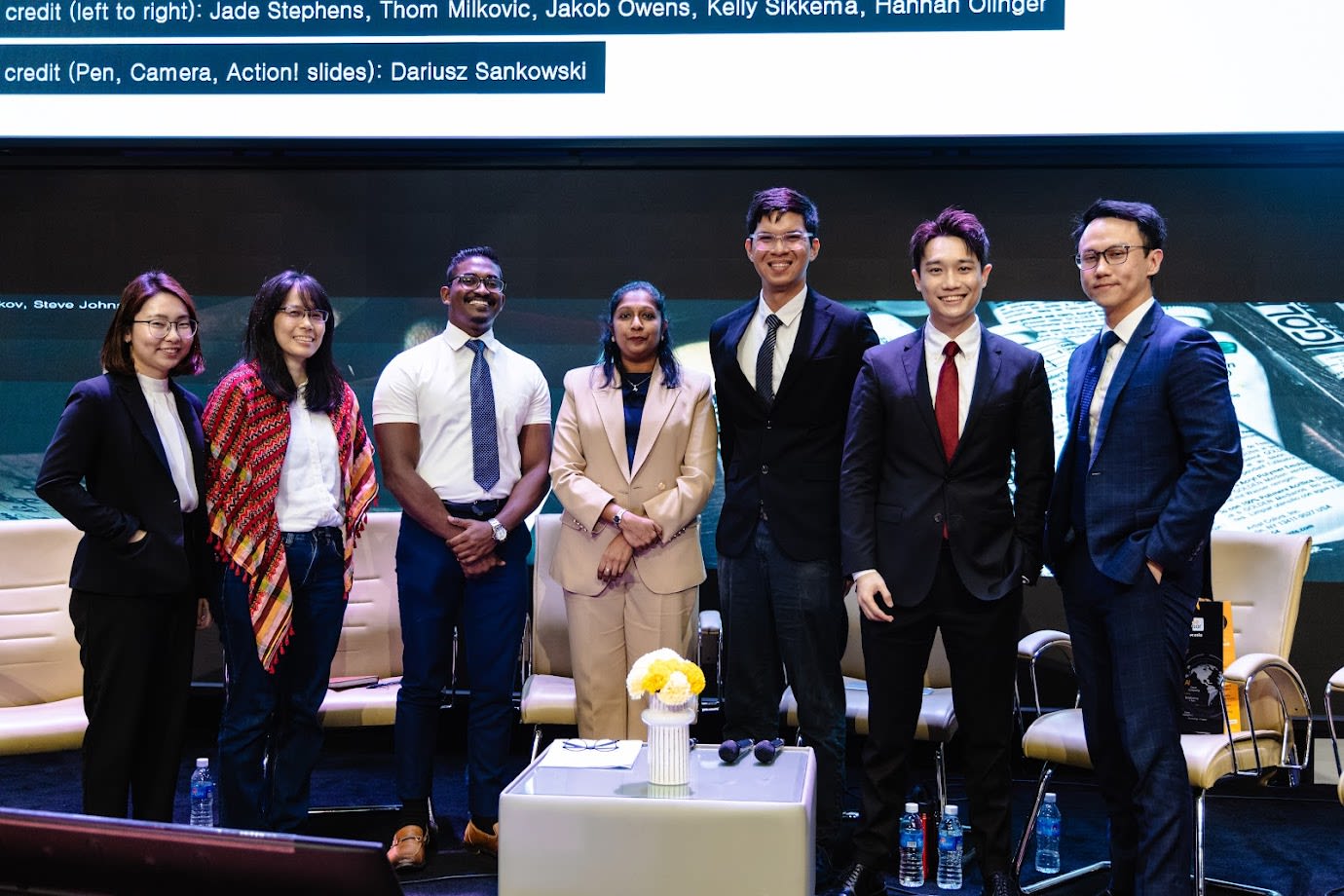Generative AI and Copywriting:
Redefining Literary and Artistic Boundaries
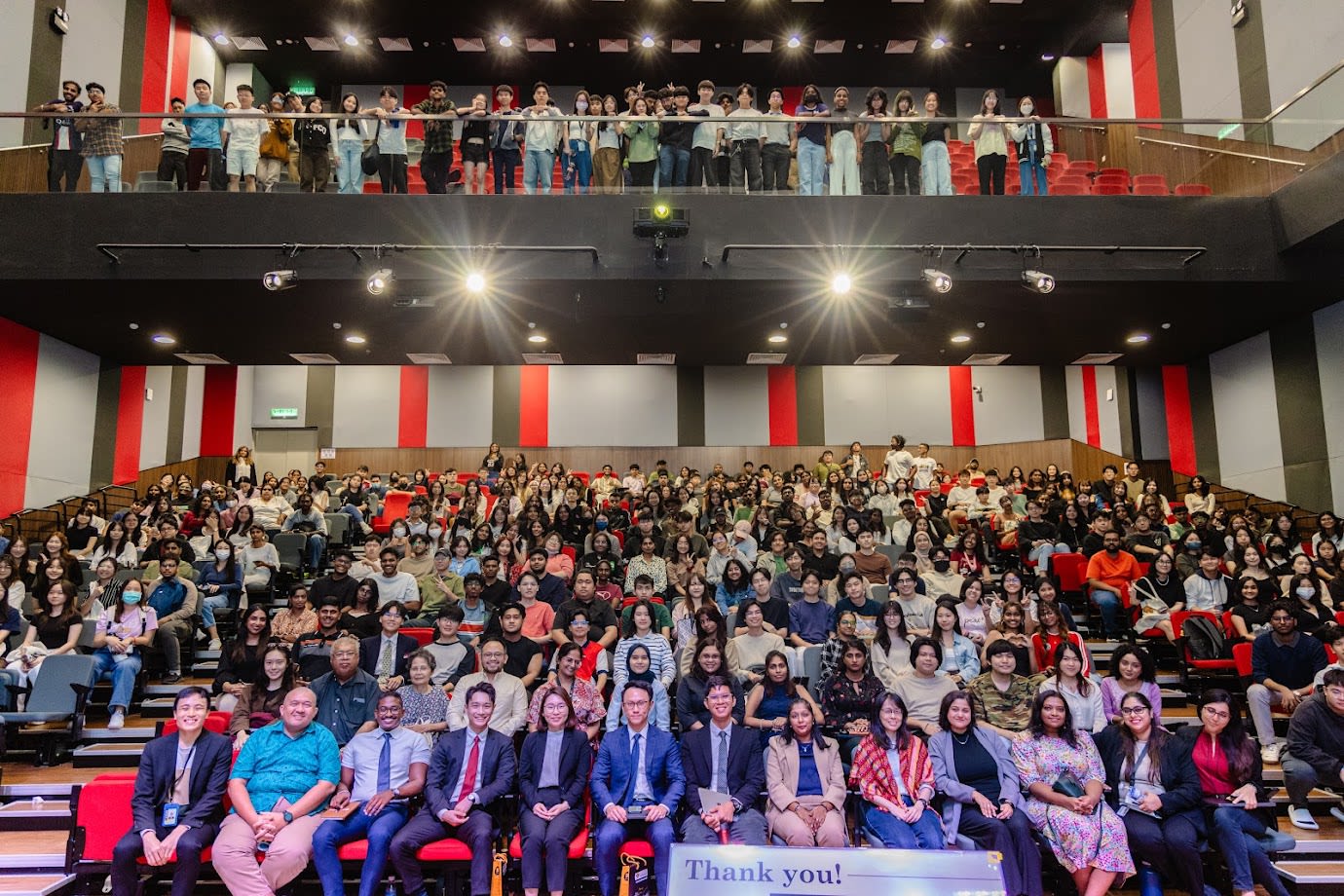
Diverse Perspectives on Technology, Creativity, and the Law
October 1st saw BAC Education hosting an engaging panel discussion titled "Generative AI & Copywriting: Literary & Artistic Works - featuring a panel of experts who explored how AI is reshaping artistic creation, copywriting and the complex legal landscape surrounding AI-generated content. Kicking it off was none other than our very own Mr. Raja Singham who gave an engaging talk about how AI is not to be feared but is actually paving the way for an evolution in education.
The event gathered a dynamic mix of professionals, each bringing their unique expertise to the conversation:
AI in Literary and Artistic Works
Nadirah Sharif and Nathan Tharmalingam kicked off the session with an in-depth look at how Generative AI is transforming the creation of literary and artistic works. They explored the possibilities AI offers for artists and writers, from generating entirely new works to assisting in the creative process. Their discussion shed light on how AI tools are reshaping traditional creative workflows, helping artists produce new forms of media that push the boundaries of conventional art.
The big emphasis during this segment was how detached the actual voice and eye of AI is when it comes to art and emotion. With Nathan Tharmalingam giving us a view of his journalistic days and how the human emotion carries significant weight when telling a story.
Legal Complexities of AI-Generated Content
Following the creative perspective, Ong Johnson, Lo Khai Yi, Puvaneswary Vickramasingam, and Thaddeus Gabriel focused on the legal challenges of AI-generated content and the evolving landscape of copyright law.
They examined how current IP laws often fall short in addressing AI-generated works and the urgent need for regulations that adapt to these advances. Issues like authorship, copyright ownership, and liability for AI-created content were key points of debate, with each panelist offering insights from their specialised areas within IP law.
There were elements of intrigue and curiosity with how the law will develop around this new technology. Will Malaysia craft legislation from the ground up or follow the already existing and evolving framework of the European courts? Either way, the legal experts couldn't help but express their excitement to see how it all plays out.
Paving the Way Forward in AI and Intellectual Property
Undoubtedly, forward-thinking events like this can only encourage others to consider the future of intellectual property as AI-driven innovation continues to grow. With AI’s ability to create content that blurs the line between human and machine creation, the panel emphasised the necessity of adaptive laws to protect both the rights of creators and the potential benefits of AI.
With events like this providing a comprehensive view of the intersections between AI, creativity, and intellectual property law through the diverse perspectives of its expert panelists, the event illuminated the challenges and opportunities AI brings to the fields of law and the arts. As AI continues to drive transformation in creative and legal sectors, discussions like these will only elevate the importance of preparing for a future where AI and human creativity can coexist and thrive.

